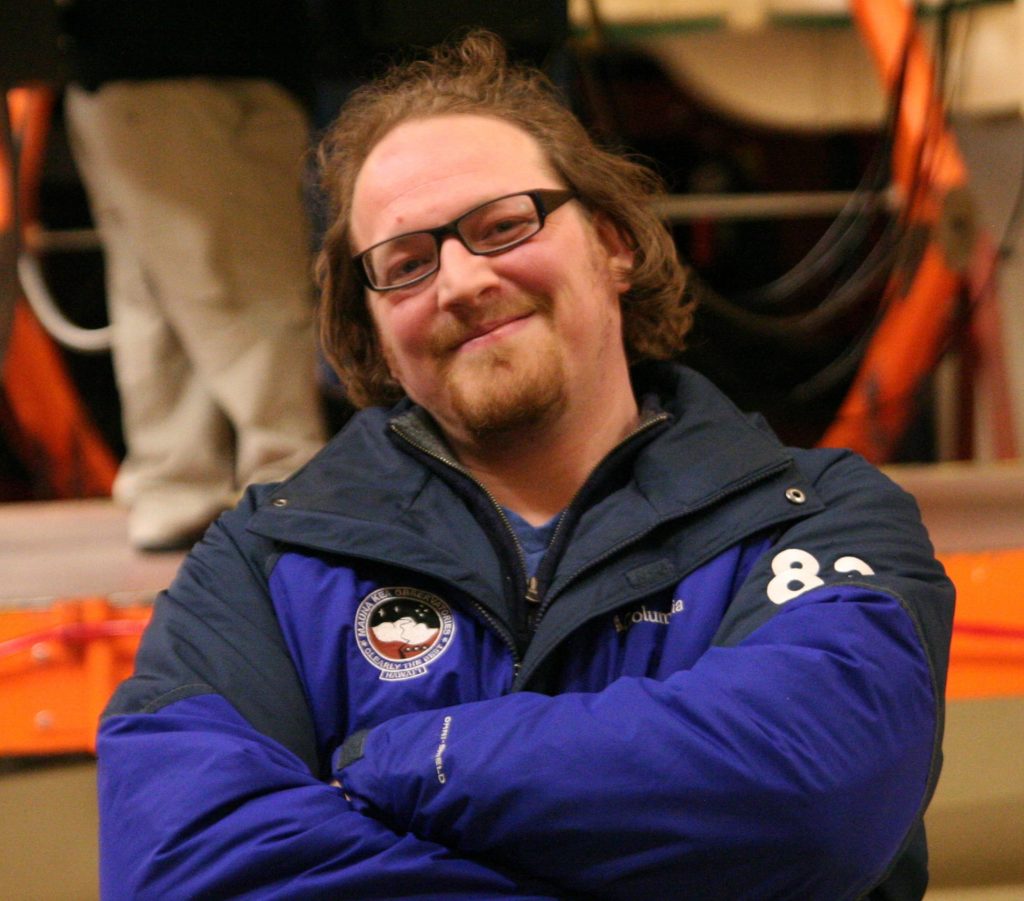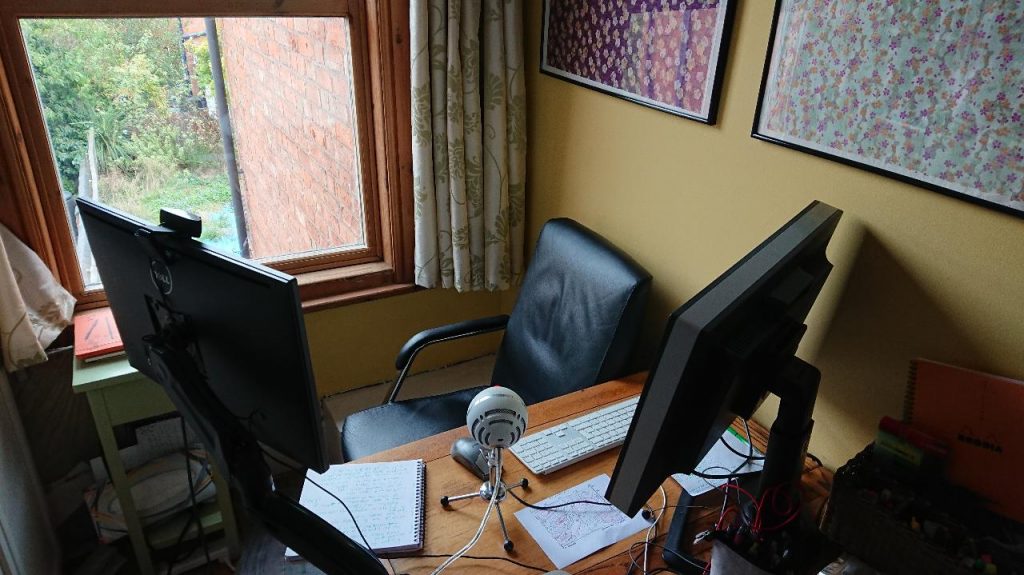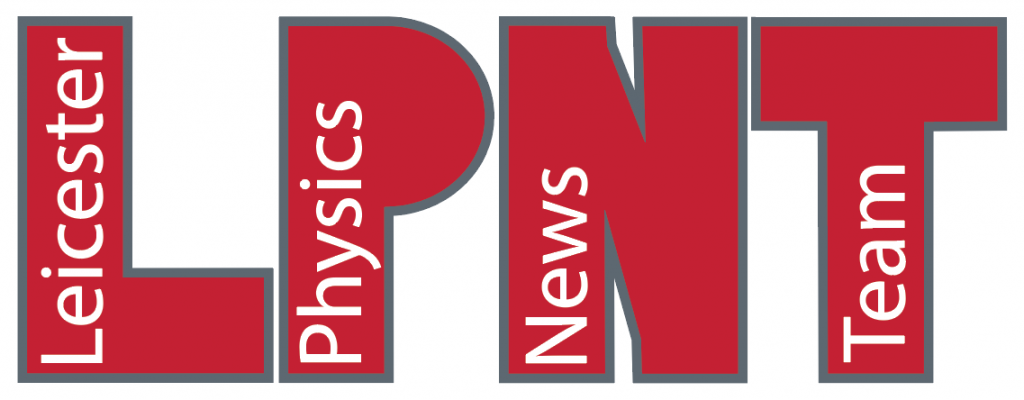Dr Tom Stallard is the Post-graduate Tutor in the School of Physics and Astronomy as well as being an Associate Professor of Planetary Astronomy.

What is your official Job Role?
I am an Associate Professor of Planetary Astronomy.
Can you briefly describe your role within the School of Physics and Astronomy?
I have a combined research and teaching role here in the school.
My research is focused on measuring and understanding the ionospheres and upper atmospheres of the giant planets – to do this, I use a combination of ground-based telescopes, like Keck, VLT, Gemini and IRTF, and measurements from spacecrafts like Cassini and Juno. I love this research because we get to look at a very thin, delicate region of the atmosphere as it is battered by two enormously powerful and complex systems – the underlying atmosphere and surrounding space environments – that are both determined to do what they want, only meeting and interacting within this thin air at the edge of space. It results in a weird and wonderful place where physics slips and trips us in unexpected ways!
This has also lead me to work on a number of proposed space missions, with my hopes currently pointed towards a return to the ice giants. I’m the Neptune Science lead on the proposed NASA Discovery Mission to Triton called Trident, which is currently in its Phase A assessment, up against three other equally interesting missions within the solar system.
I have a wide range of different teaching roles both within and beyond the school. Having come from a different field, with undergraduate experience in geology and geophysics, I’m not in the best position to lecture on the advanced core physics, but having a non-physics background really helps me have a broader view of things – and gives me the opportunity to work in lots of different ways. I teach on the foundation year, where we have to explain physics to not only our own school’s students, but also undergraduates that will be studying a whole range of other science topics. I also continue to teach on the Natural Sciences degree that is now within the School of Biological Sciences.
My primary focus, though, is as the senior tutor for Post-Graduate Researchers. I find the entire topic of post-graduate research (PGR) utterly fascinating. The approach to learning is vastly older than most pedagogic work – the ‘Master and Apprentice’ approach to learning is as old as civilization – and yet our understanding of it is much more nascent. For the longest time, we’ve just accepted the traditional way PhDs work, and only in the last decade or so has there been significant new research on how we can improve the experiences and training for post-graduate researchers. Given how much PGR students are the lifeblood of science, working to better things, both within the school and more generally, is very fulfilling!
What made you want to start on this career path?
I’ve always been very lucky! I was really interested in both geography and physics and so decided to compromise with a degree in geophysics, but on applying as an undergraduate found what was a very new degree at UCL called ‘Planetary Science’. It was just fantastic – I remember observing Mars through a telescope the same week as looking at moon rocks through a microscope. That really opened my eyes to the incredible research that is done within our solar system, so I was determined to find a way to become a research student. I’d actually already accepted a funded MSc Remote Sensing at Leicester, hoping to use it to leverage a PhD in Venus or Mars geology, when my undergraduate lecturer in Science Communication asked me whether I’d be interested in applying for a PhD in Planetary Astronomy. I think I’d done a single astronomy lecture course in my entire degree – talk about imposter syndrome – but through immense good fortune, infrared aurora at Gas Giants was a sleepy backwater topic for a PhD, and there were very few applicants.
So, I ended up in a field I never expected to be in and that no-one had any great expectations for. It turns out, that’s the kind of perfect opportunity that you can only dream of getting – my career and research field opened up by virtue of my being in it. I often think of the cascading luck that somehow moved me to a career that seems to be the exact thing I am good at.
If you could give your former self one piece of advice what would it be?
Don’t get too caught up in the idea that you’re not working hard enough. If you spend a week feeling guilty about not working hard, you can’t rest and you can’t play. And ‘playing around’ can be the key to finding something new and amazing in your science.
It’s advice I still have to give myself every month – imposter syndrome never goes away – but I have the advantage now of having seen the fruits of just mucking about with my data instead of doing a straightforward, dry analysis. For example, the study of how Jupiter’s aurora varies with local time that I was supposed to be doing is still unwritten three years after the paper I wrote as a result of mucking about with what the images were showing away from the aurora. That result discovered the magnetic equator at Jupiter – it’s the only result I’ve ever presented that has made a conference room gasp. It was the work that lead to my being awarded the RAS Chapman Medal for 2019. And it was 100% me lollygagging.
What is your favourite thing to do outside of work?
This questions feels very theoretical to me this year! As for many people, my work/life balance was completely wrecked in March (at the beginning of initial Covid-19 lockdown), and, as a colleague told me last week, “let’s just keep going until Easter!”. That said, one thing I’ve found this year is that when your usual interests get boxed up and put away, other weirder things pop up to replace them.
In February, just before lockdown, there was a really interesting month of Japanese cinema at the Pheonix theatre. I’d like to say that this lead to a thoughtful exploration of Asian cinema, but instead, I’ve found myself consuming a combination of Korean variety shows and Chinese singing elimination reality television. Peeking through this window into the pop culture of other countries definitely provides a bit of stress relief, but I’ve come to realise it is also helping to fulfil the need for experiences I usually gain from the opportunities of international travel that my job typically requires. I was surprised to realise that those experiences were something I really missed.
Do you have any pet colleagues?
I have allergies that prevent me from having pets, which has been particularly frustrating this year. I do get to share in the joys of other people’s pets – both my brothers have a lot of fun with their cats and dogs. But ultimately, I indulge in the ‘Most viewed animal on Youtube’. I check on Maru every day, because Maru is a strange cat.
What is your proudest achievement (doesn’t have to be work related)?
It may sound kind of corny, but I have immense pride in the fantastic papers that my PhD students have written. When I’m doing interesting science, it’s easy to attribute a lot of credit to the final results, but it is much easier for me to be more objective when I see my students’ completed and published work. Some of the work my students have done is utterly breath-taking, and I have inordinate pride that I was able to help in some way on their journey to becoming such good scientists.
If you had to describe yourself in one work what word would you choose?
Given how long I’ve spent trying to think of a good work here: Indecisive
Working from home setup
Dr Stallard also sent a picture of his working from home setup and workspace.



 Subscribe to ejb71's posts
Subscribe to ejb71's posts
Recent Comments